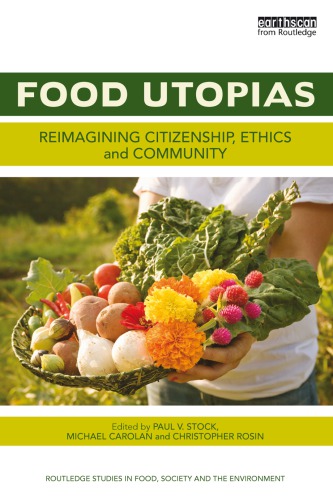

Most ebook files are in PDF format, so you can easily read them using various software such as Foxit Reader or directly on the Google Chrome browser.
Some ebook files are released by publishers in other formats such as .awz, .mobi, .epub, .fb2, etc. You may need to install specific software to read these formats on mobile/PC, such as Calibre.
Please read the tutorial at this link: https://ebookbell.com/faq
We offer FREE conversion to the popular formats you request; however, this may take some time. Therefore, right after payment, please email us, and we will try to provide the service as quickly as possible.
For some exceptional file formats or broken links (if any), please refrain from opening any disputes. Instead, email us first, and we will try to assist within a maximum of 6 hours.
EbookBell Team

5.0
80 reviewsIn this stimulating and provocative book the authors link these issues to utopias and intentional communities. Using a food utopias framework presented in the introduction, they examine food stories in three interrelated and complementary ways: utopias as critique of existing systems; utopias as engagement with experimentation of the novel, the forgotten, and the hopeful in the future of the food system; and utopias as process that recognizes the time and difficulty inherent in changing the status quo.
The chapters address theoretical aspects of food utopias and also present case studies from a range of contexts and regions, including Argentina, Italy, Switzerland and USA. These focus on key issues in contemporary food studies including equity, locality, the sacred, citizenship, community and food sovereignty. Food utopias offers ways forward to imagine a creative and convivial food system.